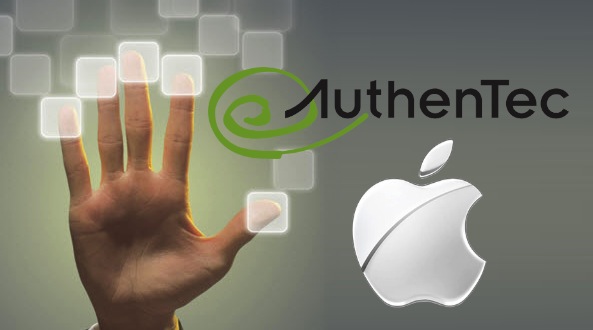Quite obviously, Apple is
growing as an industry as its iPhones and iPads are becoming more and more
commonly used in the workplace. Due to these tools’ positions in the workplace,
security is becoming a critical issue. Thus, Apple has looked into biometric
authentication and in July, 2012, bought out AuthenTec, a mobile security
company, for $356 million. AuthenTec designs fingerprint sensors and other
security products for mobile devices, which can aid in avoiding Apple’s
security issues: criminals and malicious software attacks.
According to Standard & Poor’s Capital IQ, this is Apple’s second largest acquisition, after the $400 million purchase of Anobit Technologies last year. In which case, we can infer that fingerprint scanning will be seen in future iPhones. In fact, it has been predicted that the “iPhone 6” (or whatever Apple chooses to name it) will offer fingerprint scanning features.
According to Standard & Poor’s Capital IQ, this is Apple’s second largest acquisition, after the $400 million purchase of Anobit Technologies last year. In which case, we can infer that fingerprint scanning will be seen in future iPhones. In fact, it has been predicted that the “iPhone 6” (or whatever Apple chooses to name it) will offer fingerprint scanning features.
No surprise here: Apple is
becoming greedy. AuthenTec recently announced that it will no longer be
offering its work to any company other than Apple come 2013. Its current
customers who will be essentially cut within the next year include Samsung, HP,
Dell, Lenovo and Fujitsu.
However, is this making
Apple more and more of a monopoly? AuthenTec is one of the best when it comes to fingerprint scanning
technology, and will now only be available to Apple. In a sense, this forces
other companies to worsen as it also sort of forces customers to purchase Apple
products – customers who wish for better security, that is.
Furthermore, is biometric
authentication really spreading or is it just that its users are changing, from
less powerful companies (Samsung, Lenovo, etc) to a more powerful one like Apple?
And if Apple becomes the only phone to offer such security applications in the
market, will other companies cease to exist due to even more increased
popularity in the iPhone?

Interesting -- are they the company that makes the little fingerprint scanners that some laptops have built in for signing in?
ReplyDeleteFrom Apple's acquisition of Authentec, it does seem like biometric authentication will spread to a larger user base just because it's Apple. Since the trend is towards biometric authentication, other mobile companies should integrate security applications by following Apple's model.
ReplyDeleteUsually when one tech company makes a bold move using an innovative technology, its rivals feel pressured to follow suit. Maybe at first Apple will monopolize in the security realm but hopefully its rivals should stay afloat and invest more in fingerprint scanning.
I have a question along the same lines of Sam's. Is there really only one proprietary way to have a fingerprint scanner? Would know some of the details of acquisition... such as whether Authentec has some very compelling IP on touchscreen devices optimized fingerprint scanning?
ReplyDeleteI’m not sure I get the thrust of this posting. It is interesting that Apple seems to have a big interest in biometric authentication and it could lead to some new products. But it hardly seems to have a monopoly. AuthenTec may be good, but they are far from the only company doing biometric authentication. As with many technologies, the big companies try to get a jump on the competition by buying out the best of breed, but this is only a temporary advantage, and hardly the reason to expect it to force people to buy apple or for other companies to cease to exist. Your source was “AppleInsider” which certainly has a reason to hype how great Apple is and put down the competition. It would be interesting to see a more objective comparison of different authentication technologies that are available, and the degree to which this kind of authentication is a key market differentiator.
ReplyDelete